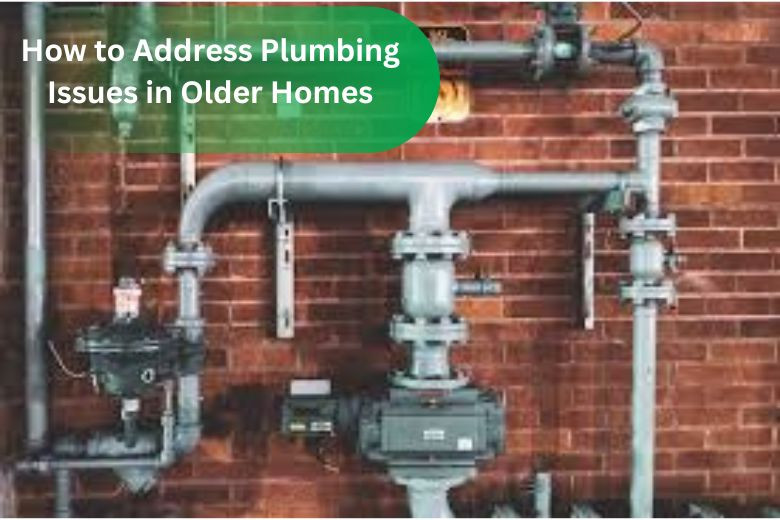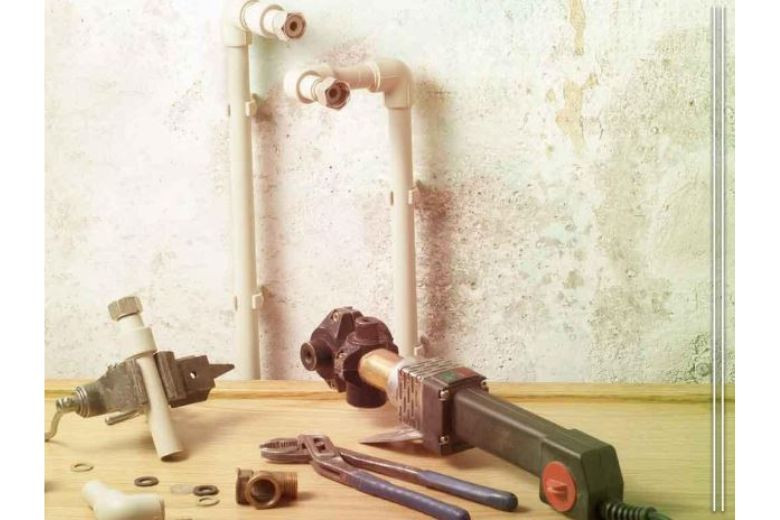How to Address Plumbing Issues in Older Homes
Posted on August 23, 2024 by Admin

There is definitely much to be said for owning an older home character and history literally in every nook and cranny. However, these charming homes are known to create rather nightmarish scenarios that come with unique issues, especially when it comes to plumbing. Problems with plumbing are quite common in older homes, largely because of the age of the pipes themselves, outdated systems, and, most generally, wear and tear over time. Therefore, knowing the way to get over plumbing issues like these in older homes is very important in making your house work right and be safely livable.
Most Common Plumbing Problems in Older Homes
One of the most common plumbing issues in older homes originates from the antiquated pipe materials used. The majority of older homes were constructed with galvanized steel or cast iron pipes, which eventually corrode, rust, and begin leaking, leading to highly serious issues with water quality. In addition, many older homes have lead pipes that are quite serious health hazards and have to be replaced urgently.Weakened water pressure is another common issue. In most cases, it is brought on by sediment buildup inside the pipes, leaks, or even old fixtures, and it can just plain weaken over time. Another issue that is relatively common in older homes concerns problems with drainage. Many of these issues have been caused by years of built-up waste, tree roots, shifting ground, and disrupted sewer lines.
How to Fix Common Plumbing Problems in Older Homes
1. Inspection and Evaluation
Begin with a good inspection to address any plumbing issue in older homes. A professional plumber will inspect the condition of your pipes, fixtures, and, in general, the plumbing system, in order to determine what needs to be repaired to what extent.
2. Replace Old Pipes
If your home has galvanized steel, cast iron, or lead pipes, consider replacing them with modern materials, like copper or PEX. Not only will this supply you with cleaner water, but it can help reduce the possibility of potential leakage and other common plumbing problems associated with older homes.
3. Fixture and Appliance Replacement
Most of the older fixtures and appliances are inefficient and prone to failure. Many common plumbing problems of older homes, like low water pressure and frequent clogs, can be fixed by new water-efficient fixtures.
4. Regular Maintenance
This is the real key to avoiding most plumbing problems with older homes. Have your system inspected once a year, clean out drains periodically, and be alert for signs of leaks or other problems. This can save you a good dollar from expensive repairs down the line.
5. Root Intrusion and Sewer Issues
Tree roots may infiltrate sewer lines, which will block or break the line eventually. If this is suspected, a plumber can make a camera inspection to find out. Hydro jetting might be used to try and clean out the roots, or, in severe cases, replace those sections of the sewer line that are affected.
6. Install a Water Softener
Hard water can further compound plumbing problems in older homes by building up minerals through pipes and fixtures. A water softener will help to curtail this, which will further extend the life of your plumbing.

When to Call a Professional
While most plumbing problems in older homes can be sorted out with do-it-yourself home remedies, most may require professional plumbers. You may want to consider calling a professional if you have persistent leaks or notice a drop in pressure, or even suspect that you may have lead pipes. They are trained, equipped, and experience batches to help them overcome such complex issues with safety and efficacy.
Must Read : The Benefits of Installing a Recirculating Pump for Hot Water
Conclusion
Fixing most plumbing problems lies in a combination of ordinary routine maintenance, updating on time, and professional help. This goes without saying: it also includes becoming proactive and sensitive to the needs particular to your plumbing system at home. Dealing with plumbing issues in older homes can sound overwhelming, but by and large, with the proper approach, you will succeed at this and safeguard that dear residence.
Faqs
-
1. What are some of the most common plumbing problems in older homes?
The common plumbing problems identified in the older home sector included corroded/rusted pipes, low pressure of the water, drainage problems, and old fixtures. Typically, these are due to the actual age of the plumbing system and materials used, which have been worn down over time.
-
2. How would I know if my older home is fitted with lead pipes?
Lead pipes are very dangerous to health and can be identified by their dull gray color. They are soft enough that a key can scratch them easily. If you think that your home contains lead pipes, it is very important to have a professional plumber inspect and confirm this.
-
3. How often should I have my plumbing inspected in an older home?
If you're in an older home, plumbing systems would need to be inspected once a year. Scheduled inspections of your plumbing system allow you to find and catch issues before they turn into huge problems. This will help your plumbing system last for years.
-
4. How do I prevent plumbing issues in my older home?
These involve the replacement of old pipes with new material, renewal of your fixtures, cleaning the drains frequently, and fitting a water softener if you have hard water. Make sure that the same is regularly maintained and inspected by a professional plumber.
-
5. What plumbing problems with my older home would dictate calling in a professional plumber?
If you have persistent leaks, significant drops in water pressure, suspect lead pipes, or complex problems like root intrusion in sewer lines, you will want to call in a professional plumber. Professional plumbers have the know-how and equipment to take care of such problems safely and effectively.
Recent Post
- Top Plumbing Service Providers in Arizona, USA
- Top 10 Electrician Service Providers in Alabama, USA
- Top 20 Roof Repair Service Providers in Alabama, USA
- The Role of Roof Insulation in Energy Efficiency: Tips and Tricks
- Understanding Roof Damage from Wildlife and How to Prevent It
- How to Choose the Best Roofing Contractor for Emergency Repairs
- Roofing Maintenance for Historic Homes: Preserving Architectural Integrity
- The Importance of Proper Attic Ventilation for Roof Health
- How to Identify and Prevent Roof Mold and Mildew
- The Best Practices for Removing Snow from Your Roof